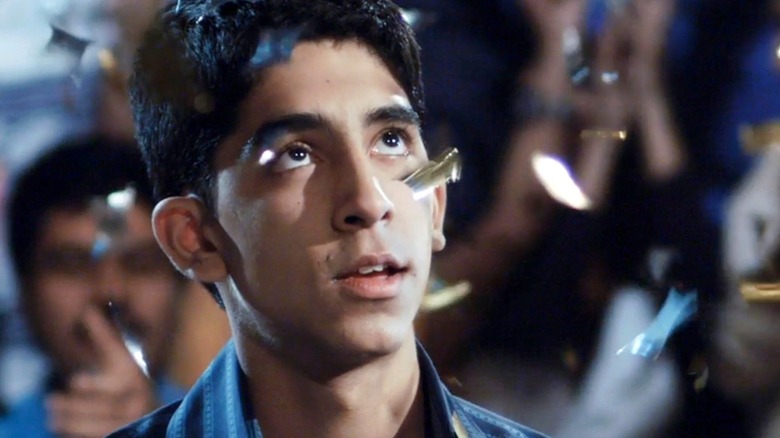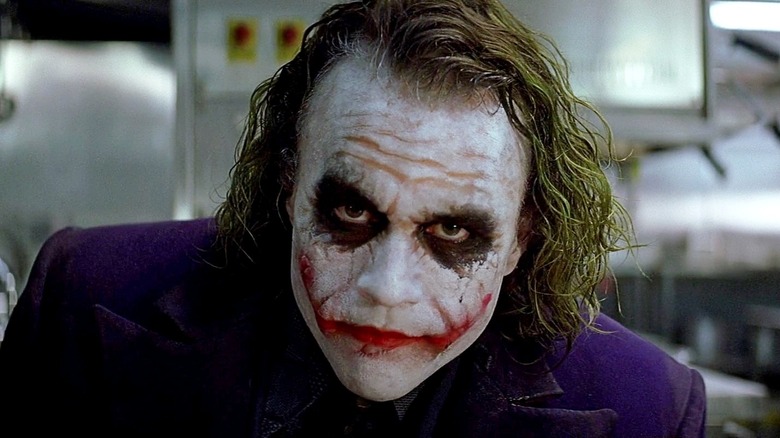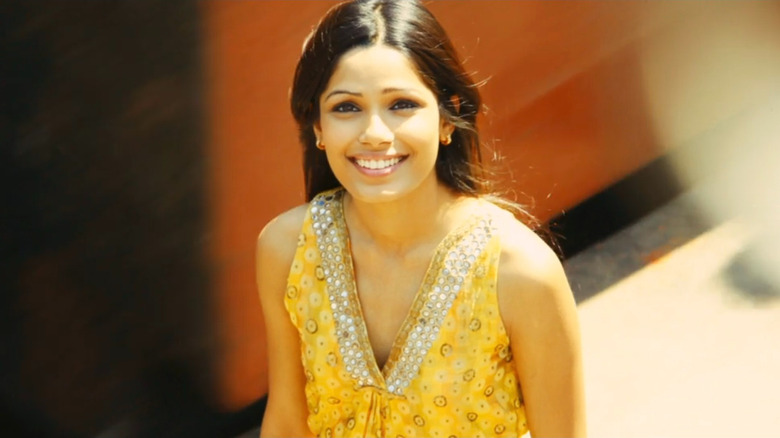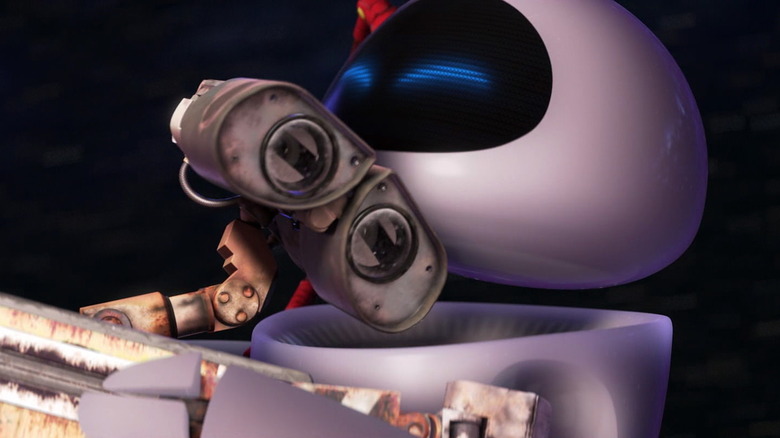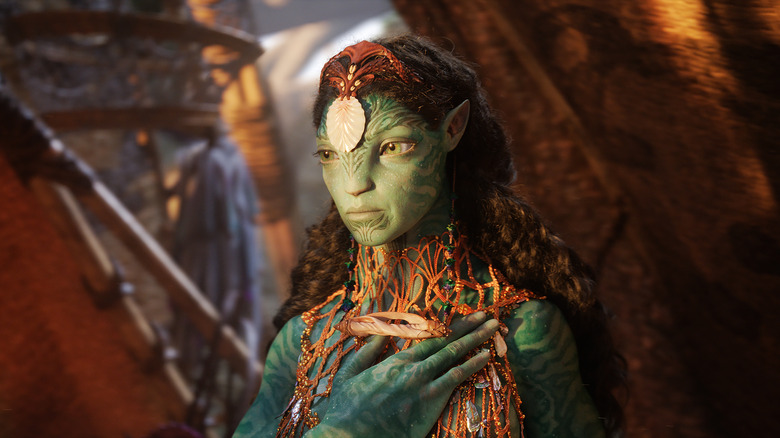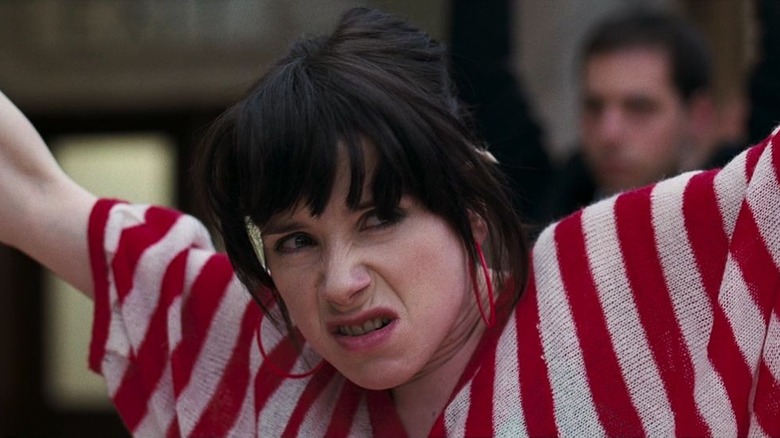The 2009 Oscars Changed Best Picture Forever - What Should The Nominees Have Been?
(Welcome to Did They Get It Right?, a series where we take a look at an Oscars category from yesteryear and examine whether the Academy's winner stands the test of time.)
It may seem impossible to fathom for many of us, but there are teenagers alive today who have never seen an Academy Awards where there were only five Best Picture nominees in a given year. The Academy decided on five nominees for the top category starting with the 17th ceremony back in 1945, and that number held all the way through to the 81st in 2009, where Danny Boyle's "Slumdog Millionaire" emerged triumphant and won a total of eight awards.
Alongside the Best Picture winner, the final slate of five featured David Fincher's sole Best Picture nominee "The Curious Case of Benjamin Button," Ron Howard's stage-to-screen adaptation of "Frost/Nixon," Gus Van Sant's biopic "Milk," and Stephen Daldry's Nazi romance "The Reader." This list of nominees isn't a particularly inspired group of cinematic offerings, but that isn't unexpected from the Academy, which has a long history of recognizing somewhat milquetoast period dramas. So why did 2009's Oscars force everyone, including the Academy, to rethink this category and want to expand the amount of nominees to 10?
It all comes back to something the Academy still worries about: recognizing popular movies that a lot of people have seen. There was a feeling that expanding the nominee list would allow more space for big blockbusters to find their way into the race instead of being looked over as frivolous entertainments. One film in particular, Christopher Nolan's "The Dark Knight," became the figurehead for populist snubs. Maybe there was a set of nominees that would have satisfied people, and the category expansion wouldn't have happened.
Where is The Dark Knight?
You could make a strong case that "The Dark Knight" is the most impactful film of the 21st century. Without question, the superhero genre has been Hollywood's dominant force over the last 23 year, starting with "X-Men" back in 2000. The genre got off to a bit of an inconsistent start, but 2008 was when everything crystallized and superhero movies became the box office gold mine we know them as today. For one, there was "Iron Man," which kicked off the Marvel Cinematic Universe that overwhelms everyone on screens big and small to this day. And then there was "The Dark Knight," Christopher Nolan's second visit to Gotham City.
Even with the endless stream of superhero films that followed, chances are strong that if you ask someone what their favorite superhero movie of all time is, they will still say "The Dark Knight." And with good reason. This was a deftly crafted, exceptionally performed, and thematically complicated exploration of a superhero world that hasn't really been matched since, due in no small part to Heath Ledger's Oscar-winning performance as the Joker.
For something so culturally omnipresent and critically lauded, it would make sense to expect it to get a nomination — and many did, including this very website, especially after it snagged the fifth slot at the PGA Awards. Ultimately, "The Reader" took its place. This caused a furor with people screaming that the Oscars were completely out of touch. Though a lot of fans saw it as a dismissal of comic book movies, what probably happened was that it came in sixth place in the voting. It was always on the Best Picture bubble if you look at the awards season as a whole. That being the case, expanding the number of nominees would prevent that from happening again.
The Oscars actually got people to see the movies
With our rapidly collapsing theatrical release windows we don't really see this effect much anymore, but in the past, getting an Oscar nomination would be a boon to a film's box office. The nominations were announced on January 22, 2009. Through the end of that day, "Slumdog Millionaire," which had been released all the way back on November 12, 2008, had made a very healthy $45 million. That's over two months of a movie with an almost entirely Indian cast finding a fervent audience in the speciality marketplace. Fox Searchlight was probably thrilled with that outcome. After getting nominated, it went on to make an additional $96 million domestically.
For as much as people want to decry the Oscars not recognizing populist films, this isn't really the year to say that. "Slumdog Millionaire" ended up making $378 million worldwide. "The Curious Case of Benjamin Button," a nearly three-hour drama where Brad Pitt plays someone born an old man and dies a tiny baby, made nearly $336 million worldwide. Hugh Jackman's opening number had an entire section in it about he (and no one else) saw "The Reader." That crossed $100 million worldwide, and that's a movie about a Nazi guard sleeping with a teenager. Not exactly what you think of as subject matter people rush out to see. Only "Frost/Nixon" completely floundered when it came to the box office out of the nominees.
These movies aren't unpopular. They just needed a platform to signal to folks that they're worth checking out, which the Oscars provided. And guess what? People actually saw them. Moviegoers didn't resent them because they weren't what they already loved. Should "The Dark Knight" have been in there? Probably, but not because people didn't see the other movies.
What else was left out?
"The Dark Knight" was not the only film that prompted the change in nomination rules. Another incredibly popular film from a big studio was also left on the chopping block: Andrew Stanton's masterpiece "WALL-E." In terms of quality, I would argue this should have made the list over "The Dark Knight," but in reality, this was always a bit of a pipe dream whether people want to admit it or not. Yes, it broke out of the Best Animated Feature box and earned a total of six nominations, including Best Original Screenplay and Best Original Score, but there was almost no indication through that entire season "WALL-E" was bound to make the five, even if it deserved it.
The film I believe was duking it out with "The Dark Knight" for sixth place was actually "Doubt." This was a film that scored a whopping four Oscar nominations for acting and somehow missed out on a Best Picture nomination. In the history of the Oscars, 40 movies have managed to rack up at least four acting nominees, and only five failed to snag a place in the top category. "Doubt" was the first one in 43 years, and it hasn't happened since. It's honestly shocking to look back and see those nominations, along with one for Best Adapted Screenplay, and not see it in Best Picture.
Other films on the outside looking in were Darren Aronofsky's "The Wrestler," Clint Eastwood's "Changeling," and Sam Mendes' "Revolutionary Road," which found itself at an impasse with Kate Winslet's other film that year, "The Reader." Now, eagle-eyed readers may have noticed that in this piece so far I have listed 11 major contenders. It makes things a whole lot easier if those 11 could fill 10 slots instead of five.
Big movies get in now, but there's still complaining
Since the Academy expanded the Best Picture category to 10 (or that several year stretch of the nebulous "up to 10" nominees), every single year features at least one movie that made several hundred million dollars worldwide, with the exception of the 2021 ceremony for obvious reasons. That doesn't mean they are all superhero movies like "Black Panther" or animated hits like "Toy Story 3," but the populist streak gets its due. Sometimes it's in the form of a science-fiction thrill ride like "Gravity," which earned nearly $750 million worldwide, or a musical like "La La Land," which crossed $470 million around the globe. I mean, the first and most recent year of the expanded category each featured an "Avatar" movie, and they are two of the four highest grossing films of all time. Those who wanted to see the big money earners in Best Picture got their wish.
But that isn't enough, apparently. Just recently, we were inundated with takes about how "Spider-Man: No Way Home" should have been nominated for Best Picture in order to keep the Academy Awards relevant. That year's Best Picture nominees included "Dune," which cleared $400 million worldwide despite being simultaneously released on HBO Max and is getting a sequel sure to make even more money. The Oscars are not and should not just be an institution regurgitating the popular movies of the year, because that is what most people have seen. Sure, some of those movies are perfectly deserving of the recognition, and plenty of them get it. The Academy even expanded the category to do just that. I think the audience should also expand their idea of what movies deserve a Best Picture nomination.
If I picked the nominees
Though it came a year after what many consider to be the best year of cinema of the 21st century, 2008 still featured a tremendous amount of terrific films that were and were not on the Oscars' radar. If I was an Academy member back at the start of 2009 filling out my ballot, my five nominees would have been a lot different than the ones that ultimately got the nods. It also would not include "The Dark Knight." Mine would probably anger the people who were grousing even more than what did get nominated.
My list would include films the Academy did nominate elsewhere. "WALL-E" would be my blockbuster choice, as I find it to be the pinnacle of what Pixar has created (and I adore most of their work). My next two choices are films that only managed to score one nomination each, Mike Leigh's "Happy-Go-Lucky" (Best Original Screenplay for Leigh) and Jonathan Demme's "Rachel Getting Married" (Best Actress for Anne Hathaway). These are two movies that should've found themselves better represented up and down the ballot, and that includes Best Picture. How Sally Hawkins wasn't even nominated for Best Actress I'll never know.
The final two slots would be for movies that theoretically could have been Oscar movies but, in reality, are far from what they go for. One is too weird and the other too small. Those films would be Charlie Kaufman's directorial debut "Synecdoche, New York" and Kelly Reichardt's first collaboration with her muse Michelle Williams, "Wendy and Lucy." Both films, in very different ways, tie my insides up in emotional turmoil that makes me feel like I need to take a walk around the block to recover from.
Definitely not a populist five, but that's why it's my ballot.
